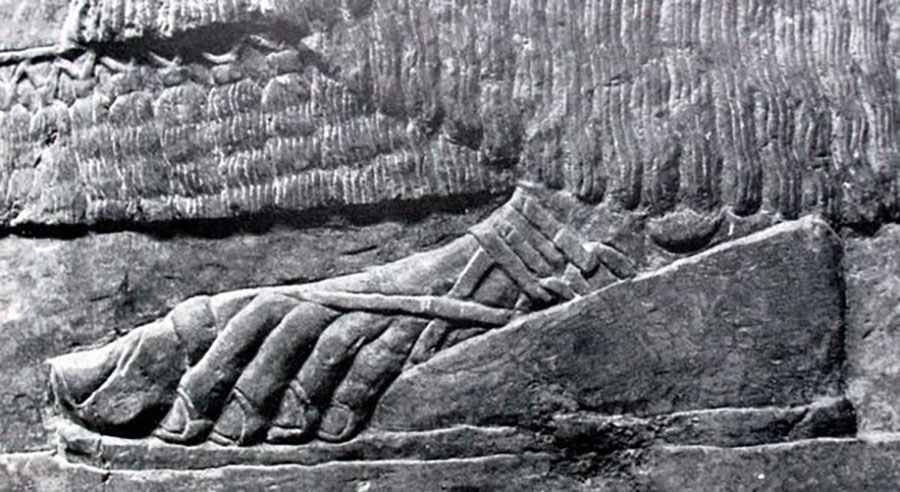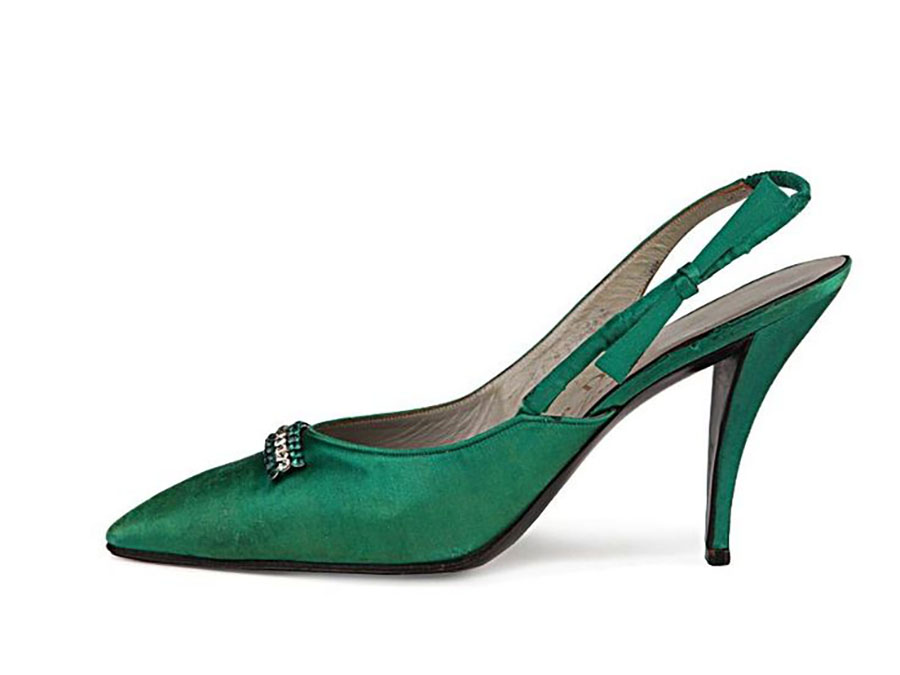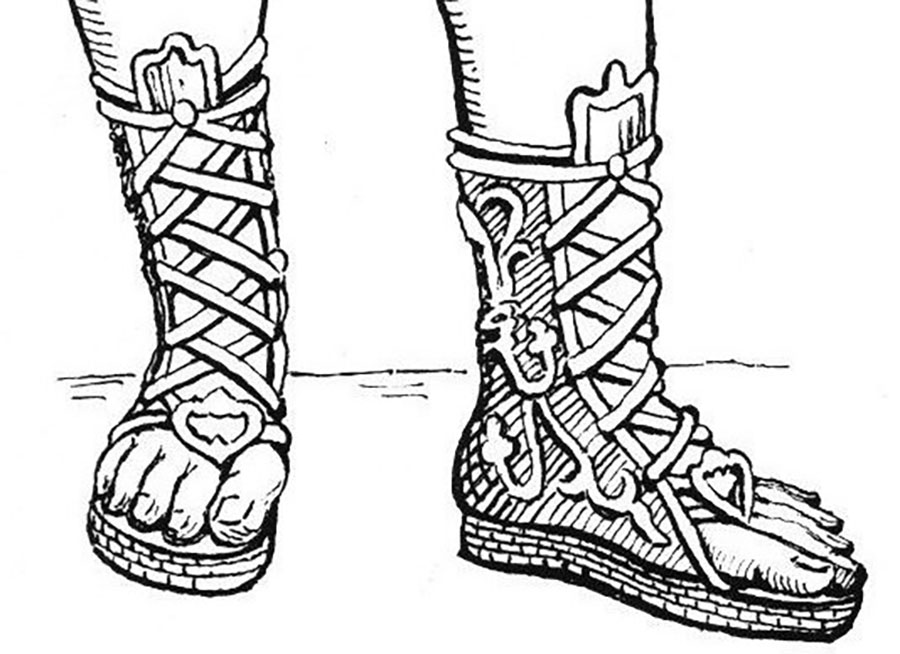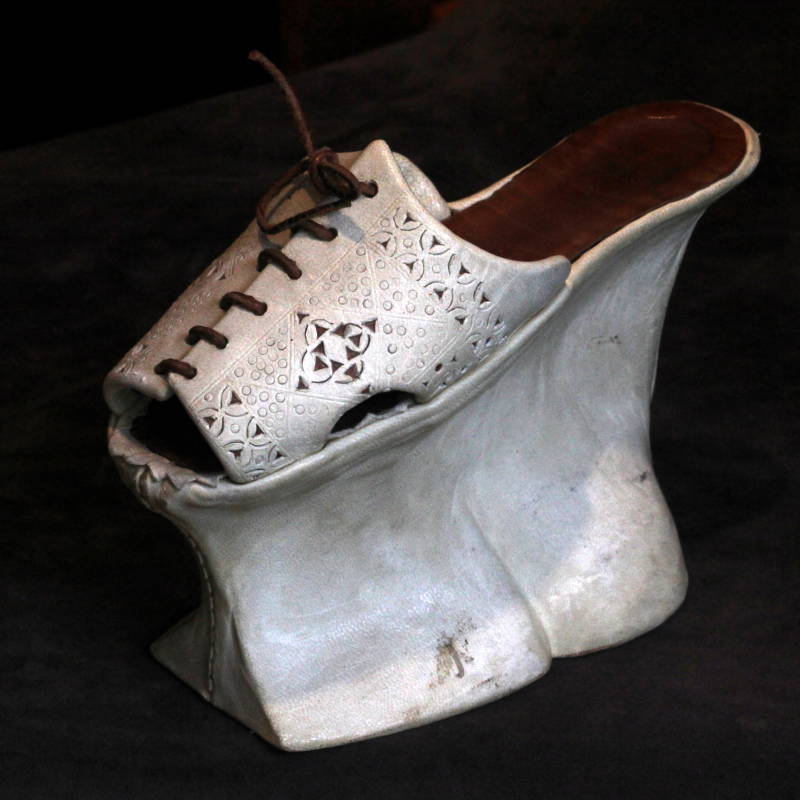About 72 percent of women will wear high heels at some point in their lives. While these shoes have become something of a metonym for femininity itself, you might be surprised to learn that the heel didn’t begin as a trend for women at all.
In fact, men wore the shoes first, and for hundreds of years the only women who ever wore elevated heels were courtesans. So how did the shoes eventually end up in practically every woman’s closet?
High Heels History: Ancient Egypt

Murals from this ancient period depict nobility of both genders wearing heeled footwear, which literally elevated their wearers from the lower classes, who would normally be barefoot. In some professions, however, the choice in footwear stemmed not from a desire for social differentiation, but matters of practical concern: butchers, for instance, would wear heels so that they could avoid coming into contact with bloody animal carcasses.
Ancient Greece And Rome
During Ancient Roman times, cork platform sandals called buskins were used as an aide in theatrical productions: as with the ancient Egyptians, the platforms were worn by actors to convey their characters’ class differences to the audience. The shoes were also used to identify prostitutes, and thus the footwear became associated with prostitution in these societies.
The Renaissance And Beyond

By the 15th century, heels were already popular among male Persian equestrians. “When the soldier stood up in his stirrups,” said Bata Shoe Museum curator Elizabeth Semmelhack, “the heel helped to secure his stance so that he could shoot his bow and arrow more easily.”
When the Persians arrived in Europe, they found a public eager to adopt their footwear. Not only did the shoes aid in warfare, they were practical: heel-wearers were less likely to step in street grime than their non-heeled counterparts.
Given equestrian sports’ association with the upper class, European male elites — regardless of their affinity for horse riding — began to wear the heels as well. These men liked that heeled footwear made them tall, and therefore more imposing.
Likewise, the women who regularly and intimately interacted with these men — such as courtesans — began to mirror their male counterparts’ apparel as a way to signal their social status to others. Thus the heel, then a symbol of powerful masculinity, became a women’s accessory as well.
Donning these heavily symbolic accessories, courtesans during the 15th, 16th and 17th centuries were essentially “elevated” from a common woman’s status and afforded many of the same privileges as men, such as the ability to enter libraries. All the while, these women took their heels to new heights: the shoes they wore, called chopines, could be up to 18 inches tall. These uber-heels were mostly made of wood or cork, but some styles were banded with metal.
If these shoes seem impossible to walk in, that’s because they were: in fact, one of the only reasons that these women could wear these shoes was because they did so almost always in the company of a man they were escorting, using him for balance. If a client wasn’t available, she could have five or six of her male servants prop her up.
High Heels History: Heading Toward Modernity

By the 18th century, the heel’s popularity had begun to decline. This was a turbulent time, rife with political revolutions, and the shoe’s potential to suggest class division was soon regarded as a bad thing. As historian Jennifer Wright noted, “The French revolution came. Democracy became fashionable and it started to seem unfashionable for anyone to tower over anyone else due to their social station.”
As the Victorian and Edwardian eras came, men began to regard the shoes as “impractical,” a trait that was — at a time when women were commonly and intensely regarded as physically and emotionally weak, frail and often hysterical — associated with women. Heels became gendered, and men abandoned them for more “practical” footwear.
Heeled footwear for women continued to evolve, though, with the first high heel manufacturing company opening in New York in 1888. Over the next several decades, particularly through wartime, “impracticality” led not to the heel’s abandonment, but its use by women of wealth, with heels once more an acceptable symbol of class and status. “One of the best ways that status can be conveyed is through impracticality,” Semmelhack said.
Heels thus influenced 20th century cultural ideals about the female form: the aesthetic effect of stiletto heels on a woman’s legs became synonymous with pornography, and after WWII, the pinup look made its way into street style, with high heeled shoes becoming a common look for women across most socioeconomic backgrounds, whether at home or in the workplace.
For old Hollywood starlets and pinups, the stiletto heel (named for the stiletto knife) became the totem of femininity. Brought into fashion in 1953, the shoe was first designed by Roger Vivier, whose heel he called “the needle.” (Fun aside: Legend has it that Marilyn Monroe shaved a quarter inch off one of her stilettos so that she’d walk with a more pronounced wiggle of her hips.)
As the heel became an essential part of a woman’s daily wardrobe, smaller, more manageable heels and pumps became commonplace. The 1960s saw the advent of the “kitten heel,” which could be worn even for tasks at home, like cooking and laundry.
The 1970s brought about the stiletto’s chunkier counterpart, the platform shoe, fashion’s response to the growing popularity of disco, which demanded that a woman be able to dance for long periods of time.
The 1980s and 1990s saw a resurgence of the stiletto as a feminist statement of power (paired often with sky-high hair and shoulder-padded power suits). Christian Louboutin became famous for his red-bottomed heels during this time and high heels became a fashion industry unto themselves, a trend that carries through to the present day — but only for women.
However, knowing that heels have a rich history with women and men, one does have to wonder if they will ever become fashionable for both genders again. Semmelheck doesn’t see why not. “If it becomes a signifier of actual power,” Semmelheck says, “then men will be as willing to wear it as women.”


